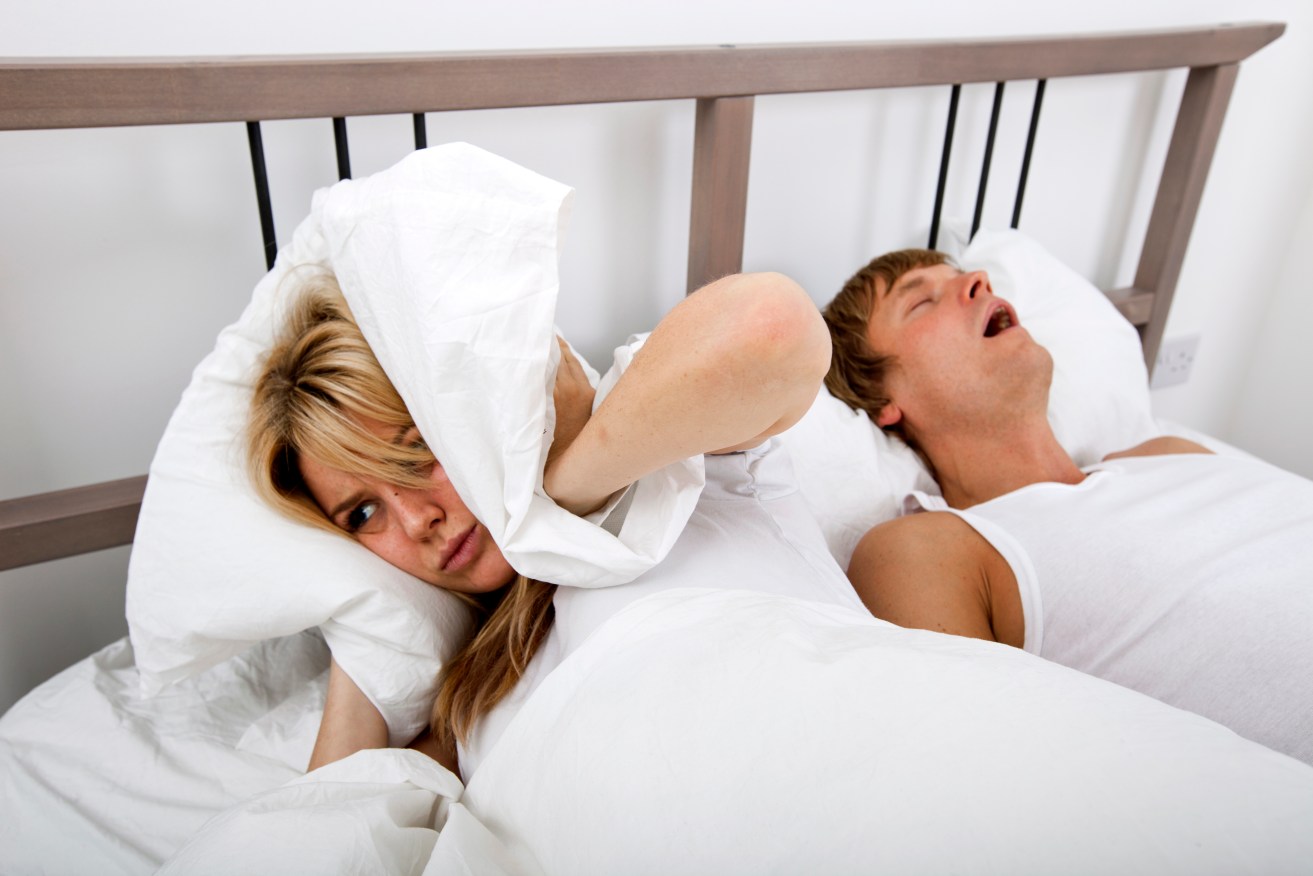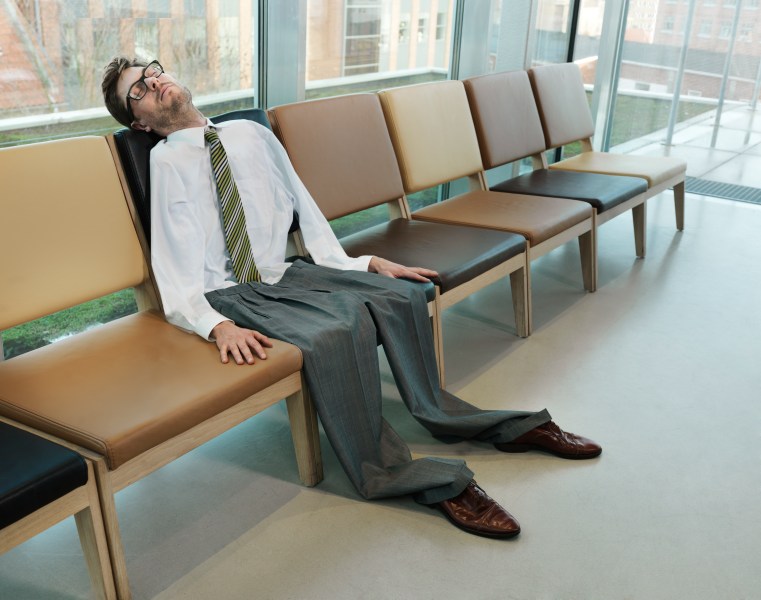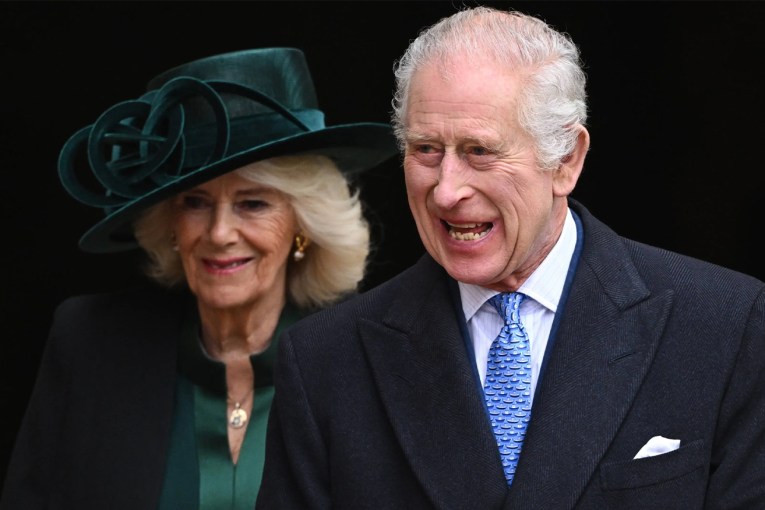Lack of sleep driving couples apart: Australia’s bedtime snapshot


Poor sleep and snoring is putting a strain on Aussies in serious relationships. Photo: Getty
Misery loves company, as the cheery saying goes.
Let’s get real. If your personal misery is failing to get a good night’s sleep, you’re not alone … but it sure can feel that way.
We’re probably a bit obsessed with sleep, as an issue. In fact there’s a name for being obsessed with sleeping well – orthosomnia.
There is plenty to be obsessed about
How much are we sleeping and how much do we really need? What can help us nod off when we hit the pillow?
What’s behind our sleep difficulties?
What happens to our bodies and minds when we don’t get enough?
And how many of us are going mad from our sleep difficulties?
A new report, from the Real Insurance Research Series, delivers an interesting snapshot that reveals – by the numbers – how poor sleep is affecting our lives.
On the sunny side, the report shows that many Australians aren’t taking their sleep problems lying down. We’re willing to shell out for new pillow, supplements and even psychotherapy to kill the poor-sleep dragon.
A significant number have actually sold their homes and moved to a quieter location.
Hang on, what’s the Real Insurance research series
The Real Insurance research series is based on quantitative online surveys of around 1200 adult Australians.
The series has explored issues such as the future of education, the cost of living, digital risks, family concerns and, in a somewhat welcome upbeat shift, the joys of Australians.
The Real Australian Sleep Report 2023 is based on survey information attained in May this year. Data was analysed and first published on October 31.
How much sleep are we getting?
According to the new report, on a typical working day, the average Australian gets around seven hours of sleep. Which isn’t too bad.
Given the extent of sleep-related complaint, those seven hours are, in many cases, broken up.
The survey found that 55 per cent of Australians generally consider eight hours of sleep per day as an indicator of a good sleep.
Read here why the reality is more complicated.
To what extent is there a problem?
Approximately 39 per cent of Australians (four out of 10) report that they always or often consistently struggle with sleep difficulties.
Another 40 per cent say they struggle some of the time.
The most commonly identified issues among Australians are:
- Insomnia, 15 per cent
- Heavy snoring, 14 per cent
- Restless Leg Syndrome, 10 per cent.
The most common concerns that prevent Australians from falling asleep include:
- Stress or anxiety, 53 per cent
- Financial worries, 42 per cent
- Family concerns, 36 per cent.
This suggests that people are dealing with multiple stressors. The survey found women especially were plagued by these issues.
Is lack of sleep making people sick?
If you have chronic health issues, they tend to worsen in their impact when you’re experiencing sleep-related problems.

Disturbed sleep is worsening blood pressure issues for many Australians. Photo: Getty
The study found that mental health problems were made worse by poor or disrupted sleep for 22 per cent (more than one in five) of Australians.
Chronic issues affected by poor sleep, included:
- High blood pressure, 14 per cent
- Weakened immune system, 12 per cent
- Obesity, 12 per cent.
Where did the wife go?
The impact on live-in relationships appears to be profound.
According to the survey, more than one in four Australians (26 per cent) in a love-in relationship – married, de-facto or living with a partner – report that their partner’s sleeping issues sometimes keep them awake.
One in four, (25 per cent) report that both partners occasionally disturb each other’s sleep.
Among Australians whose partners have sleeping issues, 40 per cent perceive this as a strain on their relationship.
Nearly one in four (38 per cent) have attempted sleeping in separate rooms from their partners as a means to manage these sleep-related issues.
What about sex?
The flame of love is struggling to stay alive in many sleep-affected households.
Close to half (48 per cent) of Australians prioritise sleep over sex.
Forty per cent say they strike a balance between sex and sleep priorities.
However, for more than two-thirds (68 per cent) of Australians, sleep quality improved when they engaged in frequent sexual activity.
Go back to bed, right now!
It’s not breaking news that children engage in a kind of political resistance when told to go to bed.
On average, Australian parents with children aged 18 years or younger living at home take:
- More than an hour (64 minutes) to put their babies and toddlers (up to three-year-olds) to bed
- 53 minutes for their four- to seven-year-olds
- 39 minutes for their eight- to 12-year-olds.

But I wanna come into your bed, mama. Photo: Getty
In one in six (16 per cent) Australian households, children wake up multiple times during the night.
More than two in five parents (44 per cent) observe behavioural problems.
Nearly one in four (39 per cent) parents notice difficulties with focusing and attention.
And one in four (24 per cent) observe mood disorders.
A rod for one’s back
Many parents run up the white flag and let their kids sleep with them.
This amounts to:
- More than one in four (27 per cent) parents consistently letting their babies and toddlers (up to three years of age) invade their bed
- One in five (21 per cent) do the same for their four- to seven-year-olds
- And five per cent allow their eight- to 12-year-olds to always sleep in their bed. That’s one in 20!

Most Australians say that insomnia affects their work at least once a week. Photo: Getty
How work is impacted
This where the report might be of great interest to government and industry bodies – the impact of poor sleep on work performance.
Nearly a third (31 per cent) of working Australians report that the quantity and quality of their sleep is affecting their work performance.
Almost four in five (78 per cent) report that insufficient sleep negatively impacts their workday at least once a week.
And one in five (20 per cent) say they have called in sick three or more times in the past year solely due to inadequate sleep.
The fixes are in: What are they?
Australians aren’t sitting in the corner and whingeing. They are trying all manner of strategies to resolve their issues.
Nearly half (49 per cent) have adopted a regular sleeping schedule in
an effort to enhance their sleep quality.
Just under half (47 per cent) have attempted to improve their sleep
by avoiding caffeine, alcohol and nicotine, especially before bedtime.
More than two in five (44 per cent) have made efforts to enhance their slumber by maintaining a balanced diet.
Almost three in 10 (28 per cent) have tried using sleep-targeted health supplements.
More than one in four (26 per cent) of Australians are consulting or have consulted a medical professional to address their issues.
An additional 28 per cent would consider seeking medical advice to improve their sleep.
More than one in 10 (11 per cent) have relocated to quieter areas in order to facilitate better sleep.
One in four (25 per cent) utilise quality or specialised pillows to enhance their sleep.
Less than one in five (18 per cent) rely on quality or specialised mattresses to improve their sleep.
We can also advise
In December, we reported on a study that contained the secret to waking up alert and refreshed. The three-part prescription requires:
- Substantial exercise the previous day.
- Sleeping longer and later into the morning
- Eating a breakfast high in complex carbohydrates, with limited sugar.
The researchers also found that a healthy, controlled, blood glucose response after eating breakfast was key to waking up more effectively.
In November last year, we advised that the sweet spot for nodding off is between 10pm and 11pm.
Doing so later – or earlier – pushes up the risk of having a heart attack, heart failure, chronic ischaemic heart disease, stroke and transient ischaemic attack.
Getting it right also makes it more likely you’ve enjoyed quality sleep.








